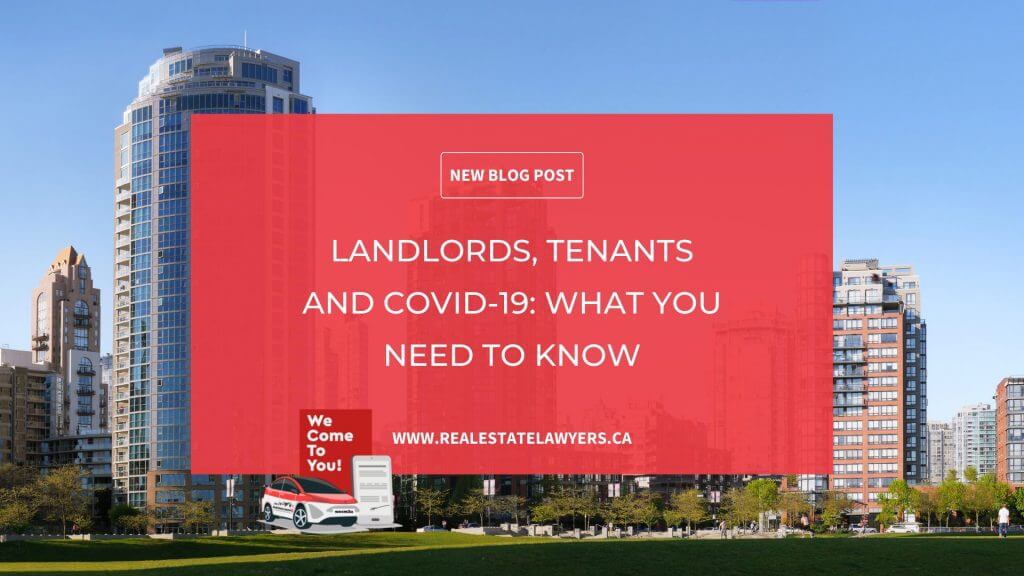
Landlords, Tenants and COVID-19: What You Need to Know
By Mark Weisleder
As the Province slowly comes out of lockdown, the rights of landlords and tenants are all affected as questions continue to arise about COVID-19. Continue to read on to learn the 6 things you need to know surrounding landlords and tenants post COVID-19.
Here are the 6 things you need to know:

Find out more about our mobile signing services!
1. Rents Can Increase Starting January 1, 2022
During the pandemic, rents in Ontario were under a mandate not to raise during 2021. However, starting in 2022, most units in Ontario can increase by 1.2%, provided that 90 days’ written notice is given in advance. However, if the rental unit was built after November 15, 2018, there is no limit on the rent increase in 2022. Some tenants have already complained about receiving increases of 20% or more. This is legal, and if the tenant does not pay, they can be evicted for the same reason as non-payment of rent. Expect this to be an election issue when the Province goes to the polls in 2022.
2. Are Evictions Happening?
The final step in any eviction is for the Sherriff of the County to physically attend and remove the tenant. During the pandemic, the Province of Ontario did not permit a Sherriff to enforce an eviction order. This is also ending as we come out of lockdown, which will allow Sheriffs to evict tenants. However, as you can imagine, there is a backlog of cases. It is still better to just make a deal to have the tenant leave in a timely manner, if this is at all possible.
3. Can a Tenant Refuse a Showing or Demand Proof of Vaccination for Any Showing?
Although there have been no cases decided, it just makes common sense that a tenant can request proof of vaccination before permitting any showings. It is also likely that a tenant cannot refuse a showing based on fear of COVID-19. However, if a tenant takes this position, it may take four months just to obtain a hearing for an eviction, which for practical purposes makes no sense. It is better to consider making a deal with the tenant to permit the showings on terms agreeable to the tenant.
4. Can a Lease be Terminated Today if a Buyer is Moving in on Closing?
It is possible to evict provided the lease is now a monthly lease, and the required 60 days notice is given to the tenant. However, if the tenant disputes the notice, this could delay closing for an additional 2-4 months. In some cases, I have seen agreements cancelled in some cases as the buyer would continue extending the closing date.
5. Can a Seller Sue a Tenant if They Lose an Agreement With a Buyer Because the Tenant Refused to Leave?
A tenant has every legal right to dispute an eviction notice, and as such, a landlord will not be successful with this type of lawsuit.
6. Practical Advice
It is worth mentioning that the real estate industry, from law firms to real estate agents, has taken the necessary steps to make sure real estate continues to be marketed and sold safely, at all times complying with government guidelines.
Still, try and remember that evicting a tenant during these times can be very traumatic, and thus if possible, try and arrange a new place to live for the tenant before you even put the property up for sale. You will not have any issues with home staging, showings or providing vacant possession on closing.



